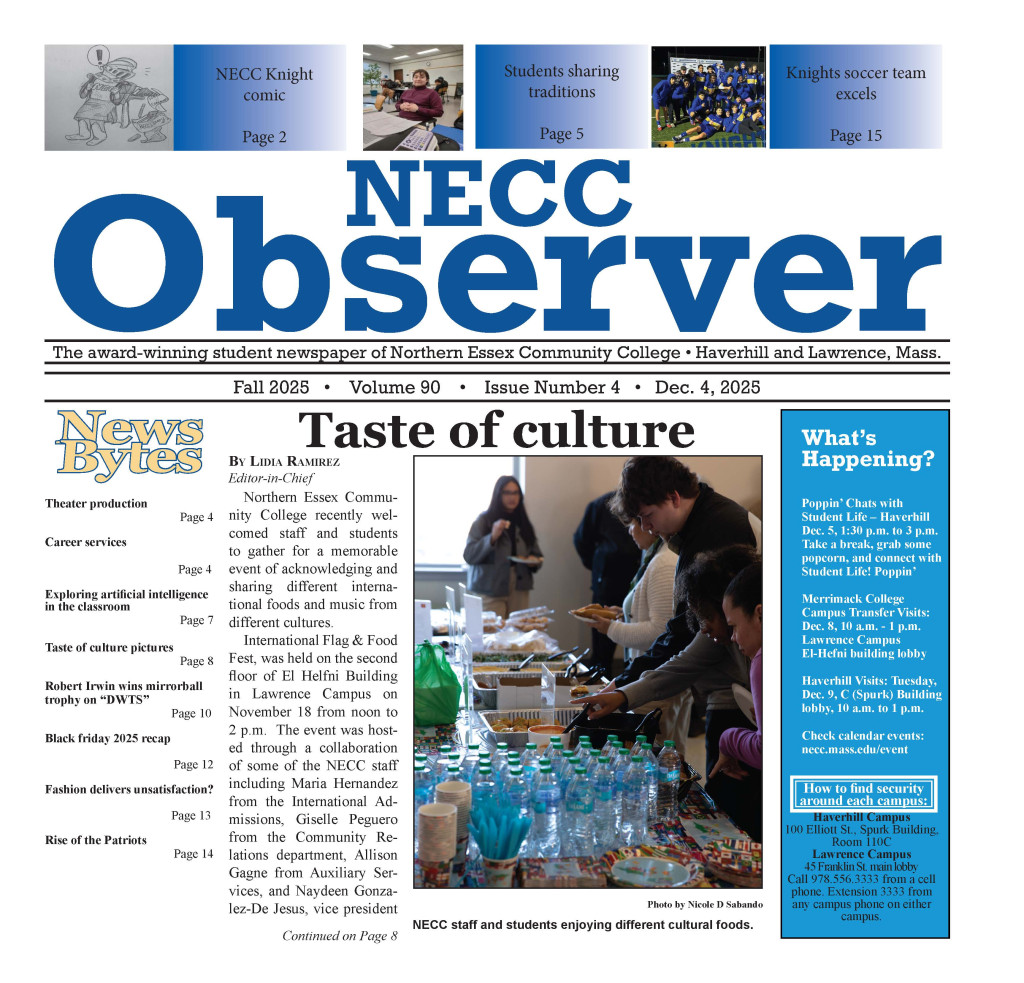This “celebration of solidarity” comes after months of failed negotiations and passive protests by the faculty, including informational pickets and the implementation of “work to rule,” which restricts the faculty to performing only those duties specifically required by their contract. Recently, flyers were distributed by the union asking students to show their support for a favorable resolution by calling or emailing NECC President Dr. Lane Glenn.
Glenn said that he has received a few calls and emails but went on to say that he is not directly involved in the negotiations and that he already fully supports the faculty’s position. “The faculty and professional staff in Massachusetts are underpaid, as compared to the state universities and UMass, and as compared to faculty and professional staff in other states,” Glenn said.
Delays to this new contract exist both in the financial proposal and some changes desired in the language of the contract from both sides, according to Glenn. Though he was not able to discuss the actual details of the contract since the negotiations are ongoing, he said, “This is the first time in many years, I think at least 15 years, that there have been any substantive changes suggested to this contract, so that’s one of the reasons … (for the delay). And there’s a new administration in the state. The last two times were under Deval Patrick, and he just rolled salary increases forward.”
In addition to fair wages, the flyer distributed by the MCCC stated that the union members are fighting for a contract that “protects [their] academic freedom rights.” Dictionary.com broadly defines academic freedom as “The right of teachers and students to express their ideas in the classroom or in writing, free from political, religious or institutional restrictions, even if these ideas are unpopular.” This could include any sort of intrusion by the government including censoring a teacher’s curriculum, the implementation of standardized testing, discontinuation of funding for controversial groups or research and a variety of other interferences. Glenn said he is unaware of anything in the proposed contract that threatens the academic freedom of the professors and that no standardized testing or disruption to the curriculum is in any way being considered by the state.
Joe LeBlanc, MCCC president, said that the flyer refers to “…a possible threat from management’s student learning outcomes proposal,” but that the threat is not specific, and he was not able to elaborate.
He does not feel that any progress has been made towards resolution of the contract and said that the state’s financial offer has stubbornly remained at the initially proposed 2 percent raise in year one, 2.5 percent raise in year two and 2.5 percent raise in year three, which is a rate significantly lower than those employed in similar higher education positions at the state universities whose contracts were negotiated under the Patrick administration.
LeBlanc said in an email interview that since the implementation of work to rule, “many college committees are moving to adjourn. College governance has been negatively affected. This will grow worse over time. Employee morale will also worsen.” About the chances of the contract being settled before the start of the Spring semester, LeBlanc said that he is “not confident, but always hopeful.”
Glenn said that he planned to stop by the tailgate party and say hello to the union members later that day. “I, this college, and the other colleges, to the extent that I speak for them, want a swift resolution to this contract, and a fair one, obviously. And while we work on it, I think it’s important that we are civil and collegial to one another and that students don’t suffer,” he said.

